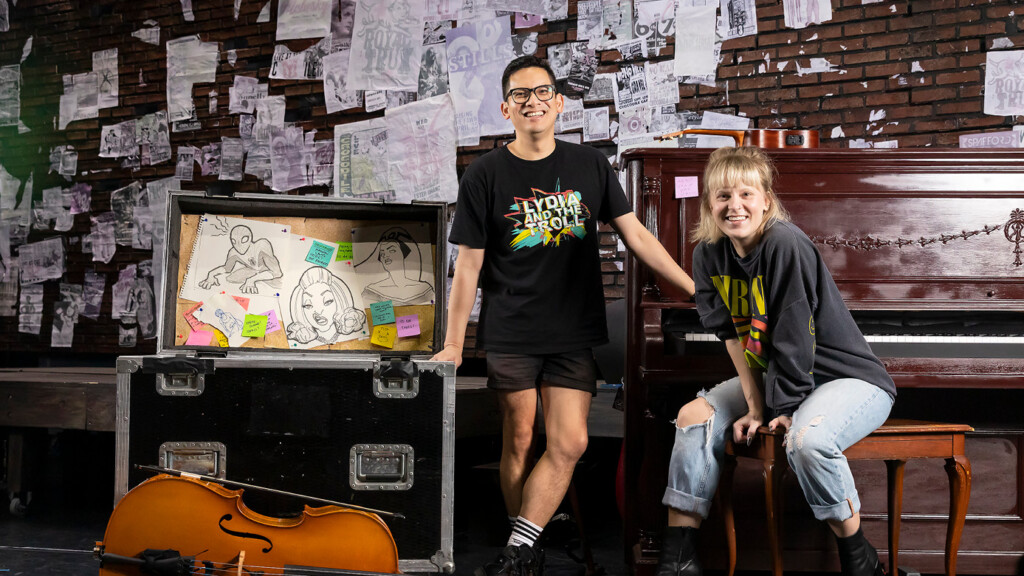Page 91 • (980 results in 0.12 seconds)
-
movements advocating for equality in terms of race and gender to discussions about police brutality and political leaders. Nonetheless, the extent to which sports can contribute to the environmental cause is yet to be fully established. One promising, widespread way in which sports–and more specifically, sports teams—can more intentionally contribute to the environmental movement is through relationships with local Indigenous groups. Using principles of Social Psychology and Native American Indigenous
-
Psychology and Developmental Disabilities Research. Her psychiatric experience includes residency at Children’s Hospital and Medical Center in Seattle, and program directors positions at the Alaska Psychiatric Institute, and the Washington State Child Study & Treatment Center, as well as serving as the Coordinator of Children’s Mental Health for the State of Alaska. For the past 16 years, Dr. Galbreath has has used her training and experience in her roles as a school psychologist, educational
-

Studies, and Sport and Exercise Psychology and a Peace Corp Prep certificate Hometown: Olympia, WA Selected accomplishments: ASPLU Vice President; co-founder, Interfaith Games at PLU; Certified Yoga instructor at PLU; student representative on numerous committees, including Academic Affairs (Board of Regents), Campus Life, Counseling Center Director Search, Parking Appeals, Parking, Sustainability, Student Sustainability; three-year student-athlete Post-graduation plans: Teaching English to 3-6 year
-

classmates who expected to land the leading roles. “They were looking at a couple students who were older than us,” deLohr says. “And then we came in and just kind of stole those roles.”I Dreamed A DreamKiki deLohr sings “Terrible Ride” from Lizard Boy. Though both had starred in high school musicals, neither Huertas nor deLohr enrolled at PLU intending to major in theater. DeLohr planned to study psychology and Huertas was a music performance major specializing in the cello. After meeting in Acting 101
-
with knowledge, gained either through a class or with a particular resource? Are you searching for a student with a particular educational background, e.g. only psychology majors? By making these specifications in the “qualifications” section of your posting, you will automatically deter or encourage certain students from applying to your position. When you’ve achieved a strong candidate pool, it’s time to begin selections. Depending on the size of the applicant pool, some employers may interview
-
Focus on techniques and processes in various mediums with attention to conceptualization and craftsmanship in three-dimensional space. Metal, wood, plaster, synthetics, video, and tools used in fabrication processes. Includes a video survey of contemporary and historical artists. (4) ARTD 280 : Art Methodology and Theory - AR Explores art historical and critical methods used for the analysis of art, including formalism, iconography, iconology, economic/social contexts, psychology, feminism, and
-
Chi (Psychology) Iota Iota Iota (Triota) (Gender, Sexuality, and Race Studies) Sigma Tau Delta (English) Lambda Pi Eta (Communication) Sigma Theta Tau International (Nursing) Mu Phi Epsilon (Music) Theta Alpha Kappa (Religious Studies and Theology) Omicron Delta Epsilon (Economics) THEATRE & DANCE Fall 2024 Type 1 - remove GenEd from existing course Courses DANC 222 : Beginning/Intermediate Musical Theatre Dance - CX, FT DANC 251 : Beginning/Intermediate Ballet - CX, FT DANC 252 : Beginning
-
) tells the story of those five guys reaching the age of forty and starting to gather at least once a year, usually for golf and always for reconnecting and reminiscing. In addition to their remarkable three-plus decades of togetherness, despite several thousand miles of separation in three directions, they were a notable group: Doug Leeland, an MD; Tom Lorentzsen, a doctor of optometry; Al Hedman, a PhD in psychology; Tim Sherry, with an MA in English from the University of Chicago and an impressive
-
. Includes a video survey of contemporary and historical artists. (4) ARTD 280 : Art Methodology and Theory - AR Explores art historical and critical methods used for the analysis of art, including formalism, iconography, iconology, economic/social contexts, psychology, feminism, and structuralism/semiotics. Relates methods to broader cultural theories from Kant to Edward Said. (4) ARTD 287 : Special Topics in Art - AR To provide undergraduate students with new, one-time, and developing courses not yet
-
undergraduate students to relate theory and practice in a work situation. The title will be listed on the student term-based record as Intern: followed by the specific title designated by the instructor in consultation with the student. (1 to 12) 12 EDUC 497 : Special Project Individual study and research on education problems or additional laboratory experience in public school classrooms. Prerequisite: consent of the dean. (1 to 4) Educational Psychology (EPSY) - Undergraduate Courses EPSY 361
Do you have any feedback for us? If so, feel free to use our Feedback Form.


